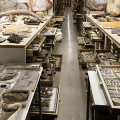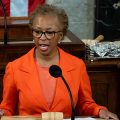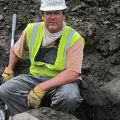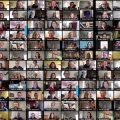Meet Rebecca Johnson: Scientist, cat lover and fearless croc handler
It’s hard enough starting a new job—finding your way around, getting to know your colleagues, adapting to new responsibilities—but what if you had to do it in the middle of a global pandemic thousands of miles from home? Amy Rogers Nazarov introduces us to Rebecca Johnson.
In March 2020, just as Dr. Rebecca Johnson arrived here from Australia to assume the role of Chief Scientist at the National Museum of Natural History, the pandemic was tightening its grip around the world.
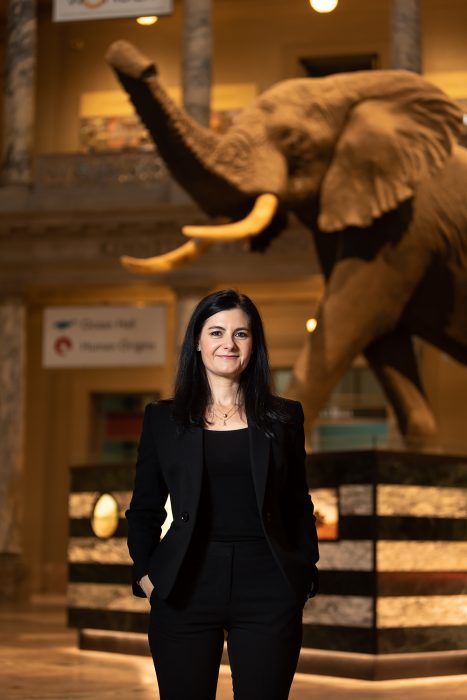
The unprecedented global crisis shaped Johnson’s early days in Washington in large ways and small, as she explained over a recent Zoom call.
“It was super exciting to come here and take this huge job at one of the most iconic, well- known places in the world,” recalls Johnson, who had served as Chief Scientist of the Australian Museum and Director of the Australian Museum Research Institute prior to coming to the Smithsonian. And yet “in my first week, it was clear that [pandemic-related] changes were happening, and that I was stepping into a crisis leadership role.”
Rarely in the Institution’s history has its mission – “the increase and diffusion of knowledge” – been lived more explicitly as it has sought to respond to and adapt to life in a global pandemic.
“The Smithsonian’s position is and has been really clear” on the merits of adhering to local and federal guidelines pertaining to social distancing, wearing masks, the merits of vaccination, etc., Johnson notes. She lauds Secretary Bunch’s efforts to “act on the science and the data,” even as it meant he had to make difficult decisions, such as closing units that had temporarily re-opened in 2020.
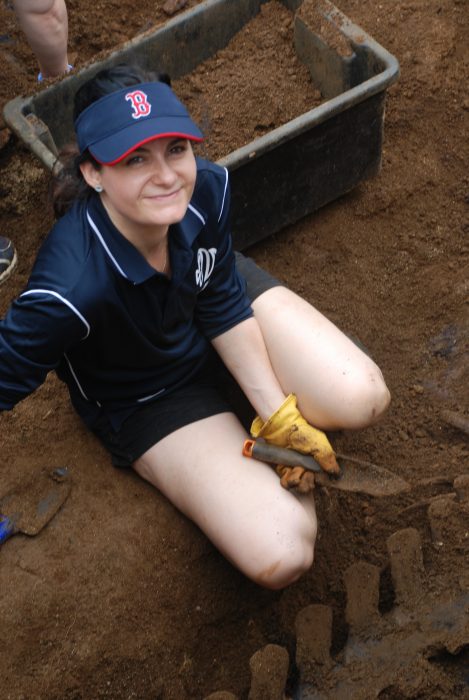
A forensic scientist and conservation geneticist, Johnson has yet to meet in person most of her team at NMNH, and she admits to getting lost each time she’s in the building (which to date is fewer than a dozen times). “I bounce around until I find something I recognize,” she says with a chuckle. Henry the elephant in the rotunda serves as a critical orientation point, as he does for many SI staff and visitors.
Levity aside, adjusting to her new life as a Washingtonian – leading staff members who were strangers at the beginning of the crisis, and missing friends and family thousands of miles away – has made for a challenging and at times painful personal transition, Johnson concedes. Maceo, Johnson’s beloved cat who accompanied her to the States, died last autumn. But her new kittens – Pete and Milo – are a balm for the loss of Maceo as well as a distraction during a steady stream of Zoom calls with colleagues she hopes to meet this year – in person.
The New Normal
“The pandemic has been handled in Australia in a very different way,” she says, noting that the geography of the world’s sole island country/continent “made it easier to maintain living a ‘normal’ life.’” As the number of vaccines has risen and the number of vaccinated people have risen, the light at the end of a long, dark tunnel is surely brightening.
“By any measure, that this [future ‘new normal’] was achieved in such a short time frame and with such a high level of ‘success’ is extraordinary,” Johnson observes. “This was most certainly made possible thanks to the knowledge, skill and expertise built by many years of foundational science. Thanks to investment and support of foundational science, so many of the science building blocks were already available – and I am forever grateful for the brilliant scientists who connected that existing knowledge to new information from SARS-CoV2 genomes to create these vaccines.
“This links to my role at NMNH because we, too, embrace the importance of discovery science and applied science,” she continues. “The two work in perfect combination to extend our knowledge and how it might help improve our lives and our environment.”
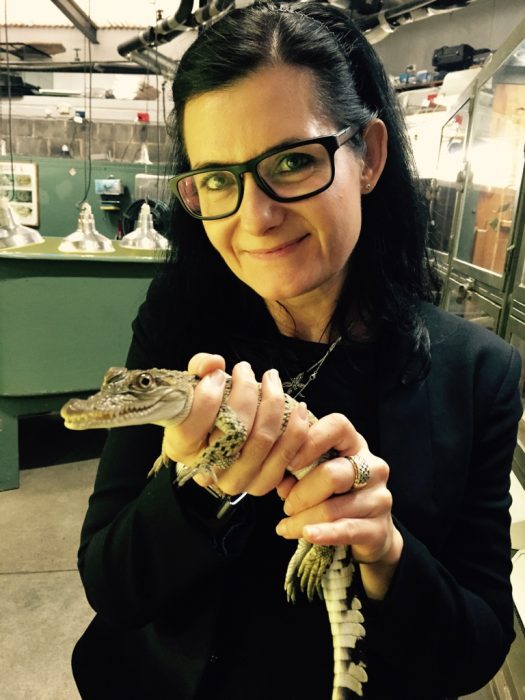
Using digital collections
Other lessons of the pandemic have begun to emerge. “If it’s shown us anything, it’s shown us the importance of frequent and clear communication” to foster work relationships as well as relationships with everyone from families delving into virtual learning for the first time to researchers making use of digital collections, she observes.
“I am very passionate about digitization and digital collections data – especially connecting everything we know about a specimen in an accessible place,” she says. “Because the Smithsonian has the largest and most extensive collection in the world, and Natural History hold the majority of that collection, we spend a lot of time thinking about how to make it accessible as this way it is of maximum benefit to us and the community.” Johnson pointed to ongoing digitization efforts of the museum’s botany collection as one that’s continued apace during the pandemic.
“I was on a [Zoom] meeting with of one of our curators the other week, who has been able to continue his research, that previously relied on access to the physical specimens, remotely”. “This flags exciting future possibilities for us and our collaborators from around the world.”
For example, the pandemic has accelerated the use of new machine learning applications that allow us to amass and analyze large quantities of data, combined with the metadata we have been collecting for nearly 200 years”.
The importance of diversity
As the first woman to lead science at the Australian Museum, Johnson became accustomed to comments that her gender made her “more relatable” – especially to young girls and women interested in STEAM topics. Johnson is also dedicated to increasing diversity across the board, including boosting the numbers of LGBTQIA+ people on staff.
While Johnson acknowledges it would have been very different to ride out the pandemic back home in Sydney, she muses that living through it alongside her American colleagues arguably makes her a more effective and empathetic leader.
“I have explored the empty streets of DC for over a year now,” she says. “It is amazing and exciting to now see them populated with visitors and residents as we move into our ‘new normal’ life. I cannot wait to see my friends and colleagues IRL, go to a Nats game – and to the ballet!”
Posted: 16 June 2021
-
Categories:
Feature Stories , Natural History Museum , Science and Nature
